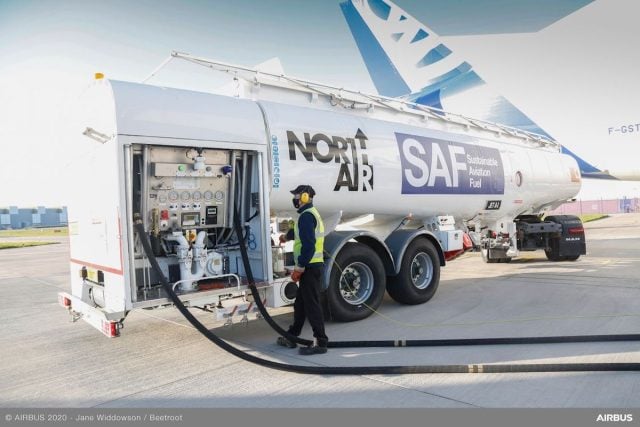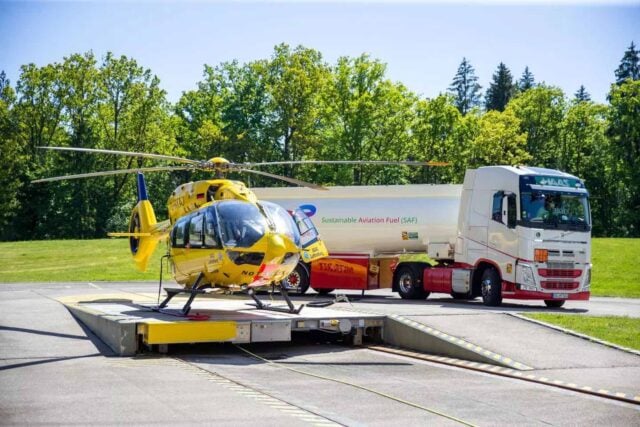South Africa: A Potential Powerhouse in SAF Production – IATA
South Africa's resources & location position it for major SAF production

South Africa has the potential to become a major producer of Sustainable Aviation Fuel (SAF), according to the International Air Transport Association (IATA).
This call to action comes during the recent IATA Wings of Change Focus Africa conference in Johannesburg, urging the country to leverage its resources and infrastructure to accelerate SAF development.
Why is SAF Important?
Marie Owens Thomsen, IATA’s Senior Vice President for Sustainability and Chief Economist, emphasises the significance of SAF not only for aviation’s decarbonisation goals (net-zero carbon emissions by 2050) but also for economic development.
She highlights the potential for job creation across various sectors and increased energy independence.
South Africa’s Strong Suit for SAF Production
South Africa has several advantages for developing a robust SAF industry, according to a World Wildlife Fund (WWF) study highlighted by IATA:
- Abundant Feedstocks: South Africa has readily available resources for SAF production, including sugarcane byproducts and biomass from invasive alien plants. Clearing these invasive plants provides additional environmental benefits like improved water security and biodiversity.
- Significant Production Capacity: The WWF estimates South Africa could produce between 3.2 and 4.5 billion litersof SAF annually, exceeding domestic demand and creating export opportunities.
- Existing Infrastructure: South Africa’s existing refinery infrastructure presents opportunities for brownfield investments, such as plant conversions for SAF production.
- Experience & Expertise: South Africa has a long history of synthetic fuel production and strong academic institutions supporting fuel production innovation.
- Strategic Location: Major South African airports like OR Tambo International and Cape Town International serve as crucial hubs for connecting flights, making them ideal locations for SAF production and distribution.

Unlocking SAF Potential: 4 Key Areas
IATA urges the South African government to adopt a strategic plan focusing on four key areas:
1. Industrial Infrastructure: Leverage existing infrastructure for a competitive advantage in scaling up SAF production.
2. Pooling Resources: Encourage collaboration between the government, private sector, and international partners to share resources and expertise.
3. R&D Incentives: Implement tax breaks, grants, and subsidies to drive down production costs, increase SAF volumes, and diversify feedstock options.
4. Infrastructure Investment: Provide tax and other incentives to support the development of necessary infrastructure, including dedicated biorefineries and green hydrogen production facilities.
